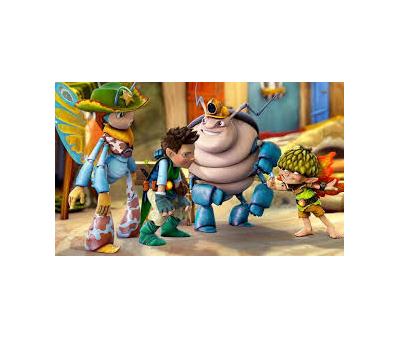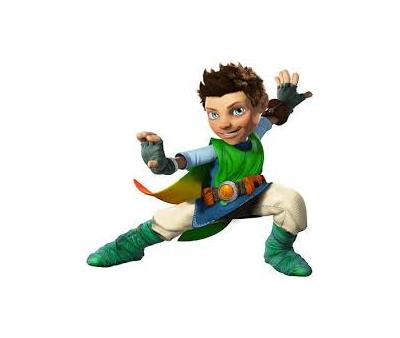This article was published in the APCP Newsletter on 24th May 2021

If you are the parent/carer of a young child, you may know about the enchanting world of Treetopolis. Here, Tree Fu Tom and his sprite friends get involved in all sorts of adventures and have to use magic they’ve learned at Spell School to ‘save the day’. Launched in 2012, over 70 episodes have been shown on CBeebies and around the world – and children’s therapists played a key role in developing the movement-based spells that are a central feature of the programme.
As an occupational therapist, much of my work has traditionally been delivered as a specialist intervention, working directly with children and young people to enable them to take part in the activities they need or want to do at home, at school and during their leisure time. But there are many children who don’t meet the threshold for accessing specialist therapy services who could also benefit from our skills and expertise. It’s not often therapists get the chance to develop universal interventions that can be accessed by all children. Tree Fu Tom provided just such an opportunity.
Each 25-minute episode of this animated, interactive programme includes two short movement-based spells. These enable the characters to do something like lift a heavy object, turn water into jelly or run as fast as a cheetah. Because Tree Fu Tom and his sprite friends are still learning, their magic isn’t strong enough so they need children at home to join in too. This ‘Big World Magic’ is of course what is needed to prevent disasters from happening.
Spell sequences are based on the movements and exercises physiotherapists and occupational therapists use to help children with, or at risk of developmental coordination disorder (DCD - also known as dyspraxia). They include moves to help children’s balance, shoulder and pelvic stability, separation of movements, fluency and midline crossing among other things. These fundamental movement skills are essential to enable children to do things such as get dressed, draw and play games with their peers. Some children struggle with these activities because they have an underlying condition or disorder such as DCD. Others struggle because they haven’t had the opportunity to develop these foundation motor skills. As therapists we don’t have the capacity to support every child whose motor skills are delayed – but contributing to projects such as Tree Fu Tom may prevent some children’s problems from escalating and requiring specialist therapy intervention in the future.
Tree Fu Tom is first and foremost an entertaining children’s TV programme. Spells require no equipment and are designed

to be fun and engaging. They have a martial arts-type feel to appeal particularly to boys who are at greater risk of DCD/dyspraxia (in line with BBC guidance however, moves aren’t aggressive). Another important principle is that spell movements have to be learned and practiced - just like therapy exercises – as unlike some other children’s programmes, characters aren’t born with magical abilities.
A bonus of the programme is that children are encouraged to be physically active whilst watching TV, typically a fairly sedentary activity. With concerns about childhood obesity and the long-term consequences of physical inactivity growing, all approaches that encourage children to move and have fun are welcome.
You can find out more about how the spells were developed and the therapy behind them here: Dyspraxia: how Tree Fu Tom can help - CBeebies - BBC
You will also find short (3 minute) clips of the movement-based spells here: Spell School - CBeebies - BBC Some schools are using these as ‘movement breaks’ by showing them in classrooms on their interactive whiteboards.
As with all universal interventions it’s difficult to assess the difference that they make. As a clinician however, I had the potential to work directly with the 450+ young people referred to our community occupational therapy service each year. As a volunteer Trustee of the Dyspraxia Foundation I indirectly support 1000 members and 30,000 others who access materials via the website or social media. By comparison, the first 11 episodes of Tree Fu Tom reached 330,000 children aged 0-6 in the UK. Being involved with Tree Fu Tom has certainly extended the reach of occupational therapy to many more children than I could possibly see individually or through my voluntary work.
Being involved in Tree Fu Tom has been a most interesting diversion from my ‘day job’. I’ve worked with some great colleagues (including physiotherapist Michele Lee who was involved at the start of the project), choreographers, animators and journalists in the UK and abroad. If an opportunity such as this comes your way, I’d recommend you take it – you, and the children we all support will benefit. And you might also get to add ‘Consultant to the BBC’ to your CV!
Dr Sally Payne,
Professional Adviser - Royal College of Occupational Therapists
